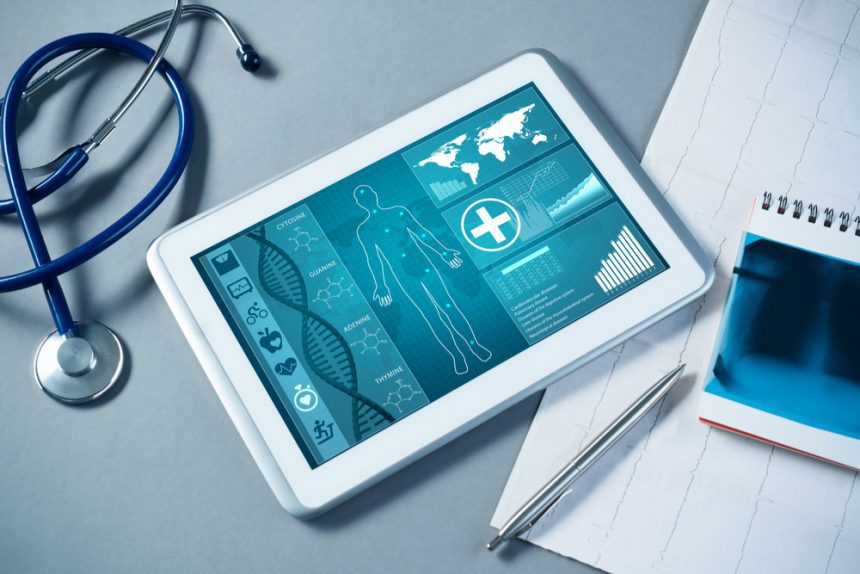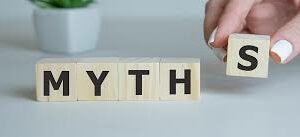When you think about the translation industry, what is the first thing that comes to mind for you? Did you just consider interpreters? We would be willing to bet that the majority of people immediately think of the translation industry when they hear the word “translators.” Then, if we were to ask, “What else do you have in mind?” they would think about it for a short while before giving up on the idea. In any case, in addition to linguists, the translation industry is composed of a large number of other types of people and positions.
This is just one of many common misunderstandings that circulate about the translation industry. Therefore, before we move on, let’s clear up some of the most common misunderstandings regarding translation services.
Myth 1- Any Bilingual Person Can Translate
Many people have the misconception that people who speak two languages are also nature translators. They have an excellent understanding of both languages, which makes it very simple for them to translate any documents that need to be done.
To tell you the truth, being able to translate between two languages is not a prerequisite for being a naturally gifted linguist; rather, it is merely an added advantage for translators when working in the translation industry.
In point of fact, translation is about a great deal more than merely moving words from one language to another. It is necessary for the translators to have a strong understanding of both the target language and culture.
Even a minor misunderstanding of the culture, such as using words or colors that are not appropriate, can cause audiences in the target country to refuse to engage with the product.
But that’s not even the whole story. A translator must also be an industry specialist in order to provide the most accurate translation possible.
They must also be familiar with the wants and needs of their target audience in order to effectively communicate with that audience and make their messages appealing to them.
A competent translator will have all of these qualities in addition to strong writing abilities.
Myth 2- Translation and Interpreting are the Same
Interpreters are primarily verbal translators, and they have to choose their words based on their reactions in the split of a second.
They are hired for particular events or engagements because they are skilled in their craft. As a result, they spend time reviewing meeting briefings and expanding their understanding of the terminology they will need prior to taking a step into the live situation.
As you are aware, translators only deal with the printed language in their line of work.
Even though they still have deadlines and have to rely on tools and skills to ensure consistency and verbiage compliance, they have more time to thoroughly select words and research topics.
As can be seen, the requirements and skill sets required by their respective industries are distinct from one another.
Mythy 3- Results From Machine Translation Are Accurate
Machine learning is a work in progress and constantly evolving which will always have its certain limitations:
Data:
Training on machine learning needs massive data sets that must be inclusive and unbiased, in addition to being of a high quality.
Additionally, there are times when they have to wait for additional data to be produced before continuing.
Time Resource
Machine learning requires a sufficient amount of time to allow the algorithms to learn and develop to the point where they can accomplish their intent with a significant degree of precision and relevance.
In order for it to function, it requires a significant amount of resources. This may result in increased demands placed on the processing power of your computer.
Result Interpretation
The ability to correctly interpret the results that are produced by the algorithms is another significant obstacle to overcome.
In addition to this, you must select the methodologies for your intent with great care.
Error-Susceptibility
Learning by machine can operate independently, but it is prone to making mistakes. Let’s say you want to train an algorithm using data sets that aren’t comprehensive because they’re too small.
The result is biased predictions, which are a direct result of using a biased training set. Customers will see advertisements that are of no relevance to them as a result of this.
When it comes to ML, these kinds of mistakes have the potential to kick off a string of discrepancies that may remain undetected for extended amounts of time.
And even when they are noticed, it takes a considerable amount of time to pinpoint the origin of the problem, and even more time to make the necessary adjustments.
Myth 4- A Translator is Able to Convert All Forms of Content
You cannot request a random topic to be translated for your project from a translator, regardless of how experienced they are, because this contradicts the first myth.
In order to produce a high-quality translation, translators need to have extensive knowledge of the subject matter they are translating.
In that case, you will not receive a quality translation but rather one that is word for word. It is not a good idea to ask a translator who specializes in a different field, such as art and music, to translate manufacturing or information technology projects.
In a similar vein, it is highly unlikely that a legal translator will have the skills necessary to be an effective content creator or marketing translator.
Some Basic Challenges in Medical Localization
The market is characterized by a great deal of rise and fall, in addition to certain difficulties associated with medical translation and healthcare.
Every type of translation is unquestionably difficult, but the kind of difficulty involved in translating documents pertaining to healthcare and medicine is noticeably elevated.
At this point in time, medical translation is very demanding, and it requires more than the standard services offered by translation companies.
The healthcare translation services help connect businesses with their customers as well as certain professionals, all of whom are operating together to improve the lives and health of individuals.
The translation of medical information is an essential component not only in the process of spreading medical knowledge however also in that of the daily medical discoveries that are made.
Help with translation of this kind is essential for providing medical services to individuals and businesses located in other countries who require their medical records and the like to be translated into their native tongue.
Accurate medical translations are not something that can be performed by just about anyone. To complete any task successfully requires the expertise of a specialist.
- Medical Language And Terminology: Careers and lives depend on accurate medical translation. Always need medical jargon experts. Medicine, a patient’s health condition, or their disease all have consistent terminology. These unique words require expert knowledge to understand. Clients must use subject-matter-expert translators. Medical translators must be multilingual and have relevant medical experience. The person should know the session’s technical terms. They must provide nurses and doctors with helpful documents for comprehensive patient care.
- Specialists: As medical services advance, specialized communities use medical languages. The best Global healthcare translation team can help. This section includes technical, occupational, academic, and professional knowledge. Medical translation focuses on user, user’s field, and medical language-based applications. Experts use this language differently. Situations and participants affect language use. These terms are used in translations of tomography reports, journal articles, case studies, case notes, and discharge summaries. When translating between a layperson and a doctor, use simpler language. Fact sheets, package leaflets, and more will be covered.
Proficient knowledge will help medical translators use appropriate language and terminology. When discussing a patient’s health issue, they may need to include details in their native language.
- Specialization in Medical Translation: Occasionally, you may find this question preoccupying your thoughts the most. How to Handle Translation Problems Easily? If you have seasoned translators working alongside you, finding the appropriate response to this question won’t be nearly as difficult as you might think it will be. Healthcare proper translation is identified to encompass a wide variety of fields. Similar to how physicians have their own specializations, such translators will frequently specialize in various fields. A translator with expertise in hematology will not be able to work on cardiology or oncology-related medical documents.
- Medical abbreviations and acronyms abound. English is often the lingua franca in the medical field, and most abbreviations and acronyms are from other languages. However, translators must avoid a few exceptions. “Patient safety”, “heart failure” and “contrast medium”, are some instances of simple compound nominal phrases. Medical terms. These phrases may change syntactically when translated. Latin and Greek suffixes and prefixes are common. In addition to that, affixes affect semantic distribution. Translators must choose doublets carefully for different audiences. These words are mostly Greek or Latin.
Also read What are the Differences Between Kratom And Kava Vines?
Final Word
The rapidly expanding nature of the healthcare industry has resulted in the emergence of a number of new challenges for its various stakeholders. They are required to keep up with the latest regulations and requirements. Accuracy is of the utmost importance in this region due to the fact that the reputations of businesses are directly related to this shift. When sold directly to consumers around the world, medical products might additionally be expected to satisfy certain legal requirements.
Check out EuroLingo if you are searching for a translation solution for your company that is experienced in the healthcare industry; in addition, you will be able to take advantage of EuroLingo’s professional translation services for European nations.
The medical industry is required to comply with regional regulations by documenting their processes in the languages used by the current market.



































